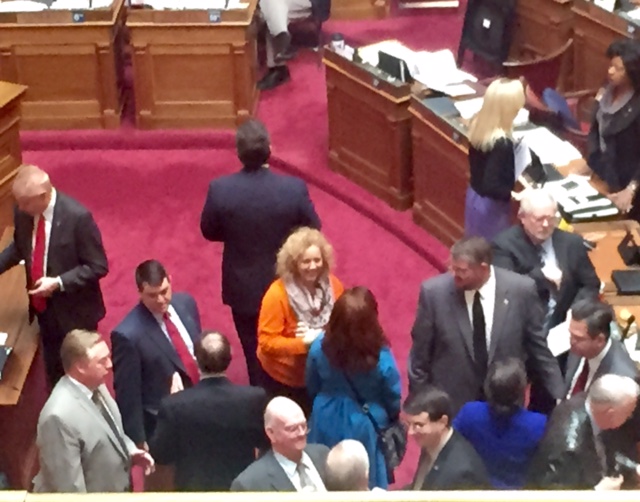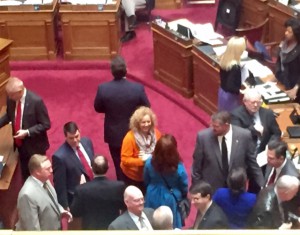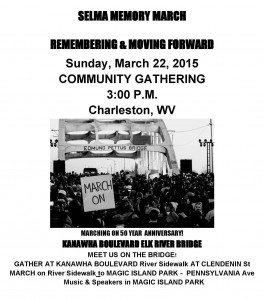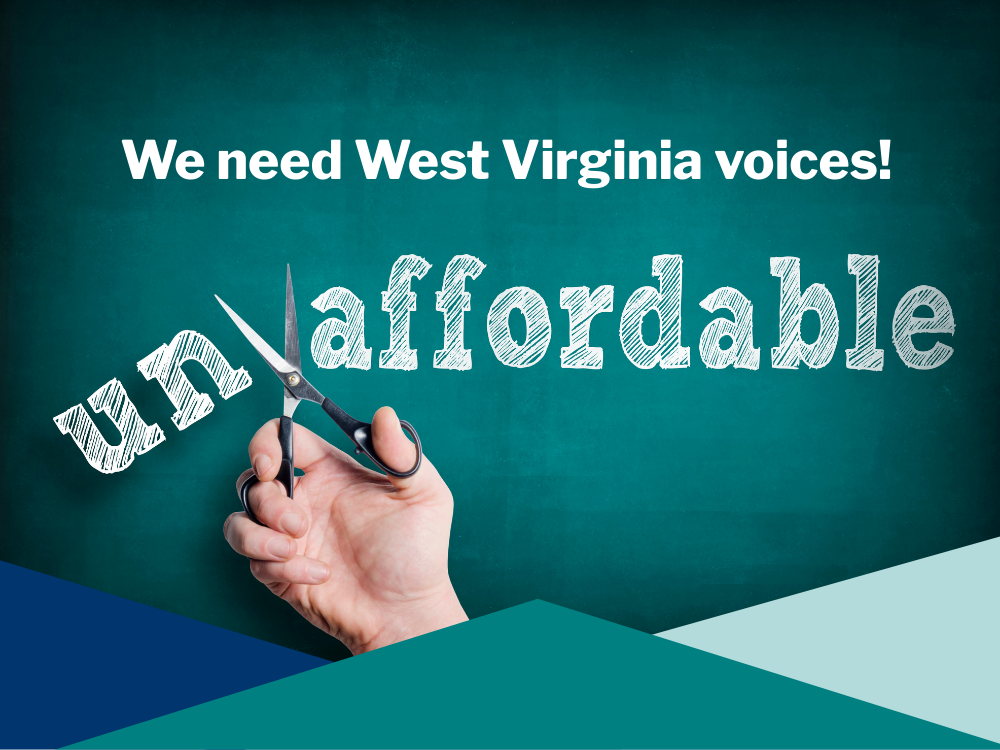- Like
- Digg
- Del
- Tumblr
- VKontakte
- Buffer
- Love This
- Odnoklassniki
- Meneame
- Blogger
- Amazon
- Yahoo Mail
- Gmail
- AOL
- Newsvine
- HackerNews
- Evernote
- MySpace
- Mail.ru
- Viadeo
- Line
- Comments
- Yummly
- SMS
- Viber
- Telegram
- Subscribe
- Skype
- Facebook Messenger
- Kakao
- LiveJournal
- Yammer
- Edgar
- Fintel
- Mix
- Instapaper
- Copy Link
 |
|
|||||||||
Historic, Hysterical, Histrionic – the 2015 Legislative Session Closes By Gary Zuckett By all measures the just finished WV legislative session was full of superlatives: the first time in 83 years that Republicans controlled both Houses; the most bills passed in several years; the most bills vetoed by the governor in recent memory; the earliest, longest and latest committee meetings and public hearings; the longest and most exhaustive floor debates over all manner of issues such as raw milk, immunizations, concealed gun permits, Uber ride-sharing, Tesla electric cars, deer farming, water protection, labor laws, limiting citizens’ access to courts (so-called ‘tort reform’), and schools, schools, schools! See Phil Kabler’s session overview in Monday’s Gazette for more on this. It was a marathon session in contrast to recent ones. One way to measure this is to look at some of the major legislation that died for lack of time on the last night including charter schools and campaign finance reform bills, the constitutional convention resolution and many others. The new leadership came in with a long wish list of bills and only 60 days to run them. The first mistake they made (before the session even began) was to fire just about all the seasoned support staff who knew how to keep the committees and legislative process moving. (This, combined with the hours they were keeping, may be the reason for the governor vetoing so many bills for “technical errors.”) Throw that together with so many new members in both houses and all new committee chairs and it’s amazing they passed what they did. It was a session that – for us in the social justice, environmental, labor, and legal communities – was one of mostly working hard to derail or at least make proposed legislation “less bad.” Take two of our big issues for example. As introduced, the bill that rolled back safety inspections on aboveground storage tanks would have eliminated all but about 100 tanks from regulation – including the ones at Freedom Industries that caused the water crisis. Due to hard work of WV-CAG and allied organizations, a tiered system of regulations now covers about a third of the nearly 50,000 tanks registered last year under the 2014 law. Read Karan’s article for more on SB 423. SB 541 as introduced was a campaign finance reform nightmare allowing corporations to donate unlimited money directly to political candidates and Super-PACs to coordinate campaigns with nominees for office. After several sub-committee meetings and long committee debates, it passed out of Judiciary as a bill with modest increases in contributions and strong disclosure of donors to “dark money” groups. See Julie’s article for the details. In the end, we were glad to see it expire. Our team of four registered lobbyists had to triage which bills to work on out of the 1,607 introduced. We coordinated efforts on environmental issues with allied lobbyists from the WV Environmental Council, WV Rivers Coalition, Ohio Valley Environmental Coalition, and the new WV Sustainable Business Council. We also met weekly with the umbrella group, West Virginians United for Social and Economic Justice to compare notes on bills of common interest and size up the new members and leadership. Labor, teachers, nurses, social workers, lawyers, as well as representatives from women’s reproductive justice and faith-based organizations all participated in these roundtable discussions. Although it was a challenging session for everyone, we feel our presence made a positive difference and we were able to continue to be the voice for the citizens at a time when special interests were demanding the paybacks on the big investments they just made in the last election. Ask Tomblin to Veto Anti-Tesla Bill Your calls and letters to lawmakers and the governor on legislation DO make a difference! On Friday, Governor Tomblin vetoed SB 347, the bill allowing gun owners to carry a concealed weapon without a permit or any safety training! He cited lots of calls from citizens as one of the reasons he shot it down (pun intended). Now let’s try for another veto – this time on SB 453, which basically bars Tesla Motors, maker of the hottest electric car made in the USA, from doing business in West Virginia! Call the Governor’s office at 304-558-2000. Tell him that we need more electric cars in WV and more companies doing business here. Ask him to veto SB 347! See Charleston Gazette statehouse reporter Phil Kabler’s take on this blatant protectionism. During the heated debate on the “anti-Tesla amendment,” Delegate Mike Pushkin was one of many from both parties opposing throwing the carmaker out of our state. He argued that, “electric cars are good our state and good for coal, spelled C-O-A-L. “ In response, the whole chamber immediately erupted with laughter over the tongue-in-cheek jab at the Senate President, a millionaire car dealer named Cole… What’s Missing? Jobs! The new leadership explained the lack of any effort to create jobs this session saying they were laying the groundwork for job creation through all the anti-labor, pro-privatization, anti-lawsuit / pro-“tort reform” legislation that they claim will bring new businesses flocking to the state sometime in their fantasy future. Meanwhile our infrastructure is crumbling, our roads are full of potholes, and our schools are in drastic need of repairs and rebuilding. All these good job-creating opportunities were passed over. But don’t worry about the potholes; they just passed an “Adopt a Pothole” bill that allows “business and private entities” to contribute to a fund to fix their favorite potholes. We’re not kidding, look up House Bill 2571. What’s Next? 2016 – We’ll have one more session with the present conservative leadership until the top to bottom elections next year. We’ll be voting for President, Governor, every WV Delegate and half the state Senate. We’ll need to sustain progressive outrage and make sure, unlike 2014, that those who are with us on these critical public policy issues get out to vote next time. Already, the politicos are jockeying for a shot at the governor’s mansion and presidential election years historically have better voter turnout. Our task will be to turn out enough to bring leadership at the statehouse back to middle ground. Finally, we want to extend a BIG THANK YOU to all of you who took the time to show up at the Capitol, make calls and send letters to lawmakers, and contribute to our work here at Citizen Action. We couldn’t do what we do without your support. We’ll keep up the fight for a cleaner and greener, more diverse, and more productive West Virginia because we know you’re standing with us! If you’ve been waiting for the right time to send in your membership this is the perfect time while we’re regrouping for the next fight! Checks can be posted to 1500 Dixie Street, Charleston, WV 25311 Save the Date! We’re back to our regular spring schedule for our annual awards dinner and fundraiser. This year it will be on Friday, May 15th at the Charleston Woman’s Club. Pencil us in for an evening of good food, good fun and good people!
Campaign Finance Legislation Stalls in House; Non-Partisan Judicial Elections, Other Reforms Headed to Governor By Julie Archer In our last two updates, we filled you in on the latest regarding SB 541, a terrible campaign finance bill that was temporarily improved, then gutted, and then thankfully died. As you may recall, the introduced version would have repealed our $1,000 limit on contributions to candidates, PACs and political parties, as well as our long-standing corporate contribution ban – allowing unlimited corporate contributions to flow directly to candidates. Thankfully, calmer heads prevailed in the Senate, where the bill advanced and passed with the prohibition on direct corporate contributions restored and contribution limits capped at the federal limit ($2,700 currently). Perhaps most importantly, the amended bill strengthened disclosure of third party political spending and would have increased transparency and accountability in our elections, which sponsors claimed was the goal of the bill. Although the Senate took several days and many meetings to come up with a bi-partisan bill that everyone could agree on, and which passed overwhelmingly, the House Judiciary Committee hastily rewrote the bill, removed the provisions that required increased disclosure by groups that spend huge sums of money to influence our elections without divulging the names of their donors and sent the bill to the House floor on a strictly party-line vote. In the end, however, House leadership decided to forego further consideration of the bill, rather than take time on the last days of the session to debate amendments proposed by House Democrats to restore the disclosure provisions. With the disclosure provisions absent from SB 541, we were happy to see it die and join SB 340, the voter ID bill, which met its demise earlier in the session thanks to strong opposition from the AARP and county clerks who told lawmakers the bill was “a solution looking for a problem.” Another election related proposal that stalled was SB 548, which would have changed the procedure for filing U.S. Senate vacancies. The Republican sponsored bill was proposed to keep U.S. Senator Joe Manchin from picking his successor if he decides to run for and is elected Governor. While these bills, failed to clear all the necessary legislative hurdles, several other elections bills have been sent to the Governor. Of those proposals that made it across the finish line, perhaps the most significant is HB 2010, which will change the way we elect judges. The bill requires that all justices to the WV Supreme Court of Appeals, all circuit court judges, all family court judges and all magistrates be elected on a non-partisan basis. Starting in 2016, these elections will take place during the May primary. The bill also changes the amount of funding candidates who participate in the Supreme Court of Appeals Public Campaign Financing Program would receive. Because there will only be one election rather than a primary and general, candidates who qualify to participate in the program would receive $525,000 in public financing to run their campaign. The process of qualifying for public financing and other aspects of the program are unchanged, however, long-term funding for the program still needs to be addressed if it is going to continue to be a viable option for candidates who don’t want to rely on financial support from lawyers and other parties that may have cases before the court. In addition to the bill for non-partisan judicial elections, the legislature also passed and sent to the Governor SB 249, which would prohibit straight party voting in the general election, and SB 312, which sets a deadline by which candidates must file their campaign finance reports in order to avoid being disqualified from being a nominee and appearing on the ballot in the general election. The latter was proposed and passed in response to the controversy that surrounded former Delegate Suzette Raines (R-Kanawha) last year, when she faced legal action from the Democratic Party for failing to properly file reports to the Secretary of State’s office and the state Ethics Commission. A companion bill, SB 325, which set deadlines for candidates to file financial disclosure statements with the Ethics Commission and disqualified any candidate who failed to file the statement by the deadline, passed both houses, but died on the last night of the session because the Senate refused to accept changes to the bill made by the House. Two other election related bills have already been signed into law by the Governor. HB 2157 makes absentee voter fraud and intimidation of absentee voters a felony. Those convicted could face a fine of at least $10,000 but not more than $20,000, be imprisoned for one to five years, or be both fined and imprisoned. Delegate Patrick Lane (R-Kanawha) has sponsored the bill for a number of years in response to the 2010 vote-fixing scandal in Lincoln County that resulted in three county officials pleading guilty to federal charges that they illegally manipulated absentee ballots. The other bill signed by the Governor is HB 2457, which make prohibits elected or appointed officials from using their name or likeness on publicly-owned vehicles, or on “trinkets” or in advertising (including public service announcements) paid for using public funds.
In the End, SB 423 Amends the Aboveground Storage Tank Act By Karan Ireland For all intents and purposes, SB 423 (Amending the Aboveground Storage Tank Act) completed its legislative journey on Friday, March 13 when it was passed through the House by a vote of 78-21 after about thirty minutes of debate. Prior to the vote, Delegate Patrick Lane (R-Kanawha) gave an impassioned speech about the need to protect our water, ending by saying: “I’m voting with my kids.” 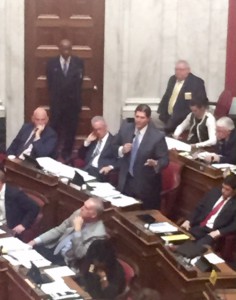 The final vote came after a week of “negotiations” between some of our allied environmental and citizen lobbyists, House members, and industry lobbyists. On Monday, March 9th, the House Judiciary Committee met long into the night, with breaks for hallway talks facilitated by none other than Speaker Armstead (R-Kanawha). Ultimately, the committee voted down amendments aimed at strengthening the bill by a vote of 13-12. Read more about the committee meeting here. Toward the end of the week, it appeared as if there might be another chance to amend the bill in a positive way. By the time it came before the full House on third reading, an amendment proposed by Judiciary Chair John Shott (R-Mercer) and Judiciary Minority Chair Tim Manchin (D- Marion) was introduced that would have struck the words “in the opinion of the secretary” and added the following language: “and are consistent with the requirements of this article”. This pertained specifically to the “alternative means of compliance” that states that any owners with tanks that are regulated under other sections of code would be able to apply for a modification of their existing permits and thus, “opt out” of the AST Act. This amendment failed 67-32. 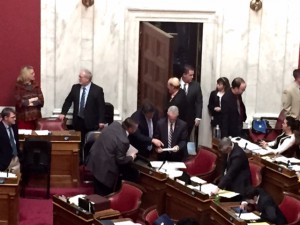 Other amendments that would have improved the bill were withdrawn on the floor, consistent with the way things happened on Monday in Judiciary Committee. One small victory was the passage of an amendment by Shott and Lane that increased DEP inspections of Level 1 regulated tanks from every five years to every three. Level 1 tanks are defined as those located within a zone of critical concern, containing hazardous materials such as those on the “list of lists”, or tanks that are 50,000 gallons or more. (It’s always worth noting that MCHM is NOT considered a hazardous material.) Those of us who were entrenched at the Capitol throughout the process left on Friday feeling dejected, but dug deep to find a renewed sense of purpose. None of the rollbacks happened without us putting up a fight. And, we will continue to fight. As of this writing, a letter has just been delivered to the Governor asking that he veto SB 423 for technical and substantive reasons. To put things in perspective: The WV Legislature- with many of the same members- unanimously passed a strong bill (SB 373) into law last year. It passed after having been referenced to five- that’s FIVE- committees. Less than a year after applauding themselves for a job well done, some of those same lawmakers introduced, or otherwise supported, bills that were almost complete reversals of SB 373. They called SB 373 “overreach” and “an emotional, knee-jerk reaction”. What they meant, is that the public became involved last year and the pressure was on lawmakers to pass an environmental regulation that was (finally) worth more than the paper it was printed on. So, they caved and listened to their constituents. But now, lawmakers insist that “they” (read: you, me- we) don’t understand what this bill really did- that we just don’t get the complexity of the law. This is patronizing, arrogant, and condescending on every level, but it’s galvanizing, too. Thanks to all of you who fought these rollbacks with us! Your voices made a difference. The bills that were introduced at the beginning of the session were much worse than the bill that finally passed. (See the entire bill history here.) Sometimes victory means defending against an even worse defeat! Some Good News For Water Quality by Karan Ireland We did “win” one when it comes to water quality standards. For years, a section of the Kanawha River (the 72 miles from Point Pleasant to Chelyan) has been exempt from meeting the EPA classification for drinking water, or “Category A”. This is one of the only sections of rivers or streams in West Virginia which do not carry the Category A designation, but HB 2283- a DEP rules bundle- passed the House and Senate and removed the exemption for the Kanawha. That means that the Kanawha River near Charleston could be used as a second source for West Virginia American Water. There was real concern that the West Virginia Manufacturers’ Association was going to push an amendment that would’ve removed Category A from the broader network of rivers and asked that it be applied only 500 yards above drinking water intakes. Thankfully, this amendment never saw the light of day, although the bill did see a change that was slipped in by the House Judiciary Committee in a not-so-transparent way. Language was added to the bill which instructs the Secretary of the DEP to “consider, for the 2017 triennial review, potential alternative applications for the Category A drinking water use designation to the waters of the state, taking into consideration stream flow, depth, and distance to a public water intake.” This change was added at the behest of the Coal Association. The Secretary could have been tasked with this consideration regardless of the language in the bill; however, we will watch this to ensure that it’s not the beginning of a slippery slope that will lead to the elimination of Category A throughout the state. Ken Ward has more about Category A here.
Reflecting On My Three Months With CAG By Jessica Steinrueck Three months after coming to Citizen Action Group my internship has now come to an end, and it is time to look back and reflect on this experience! I came with a simple goal of gaining a better understanding the United States political system, anticipating looking at this system through the lens of chemicals (due to the water crisis and simultaneously interning for People Concerned About Chemical Safety). Looking back, perhaps unsurprisingly, the theme of my internship has been water, and I have not only learned a great deal about our political system, but have come away with a wealth of new questions. When I first came here I new shockingly little about the United States governing system, and the little that I knew about the process of passing bills came from the famous Schoolhouse Rock video: I’m Just a Bill. The team at Citizen Action graciously explained to me basic terms and processes, and soon I became comfortable at the Capitol Building and able to follow what was happening. Perhaps more shocking than my own ignorance is the fact that my level of understanding of the system was average with my peers. This is something that I have been putting considerable thought to, and which I believe encompasses the issue of low voter turnout within the youth. These questions are linked because if I do not know how the current system works, let alone see that this system is effective, what would motivate me to go out and vote? If I have lived my whole life in a world where I can easily communicate with others, make decisions, deposit my checks and so much more all through an easy click on my phone, what is driving me to learn a complex system that was only briefly touched on in high school years before I could even participate? If the group of people making decisions and passing bills look nothing like my peers and have never experienced the realities of my peers, how can I pretend that they are representing us and know what we need? These are some of the questions that have come up for me during my time with Citizen Action Group, that I will be taking with me to continue to ponder. Before coming to West Virginia I had given little thought to the condition and safety of my drinking water, and had certainly not thought of it as a political issue. When coming here I realized how vulnerable water is and how catastrophic it can be when not taken care of, but I also met so many wonderful people working hard to protect it. While much of my work revolved around the pressing water issues of this legislative session, I was grateful to have been involved with women’s reproductive rights issues as well as other important issues. I must admit that I still do not know how CAG decides which bills they will take up, but my hunch is that it is based on what they believe is best for the citizens and land of West Virginia, and that is a group that I am proud to have worked for. I am grateful for the opportunity to have spent three busy months learning from the staff at West Virginia Citizen Action, and while I will be traveling back to Ohio to continue studying at Antioch College, I am looking forward to hearing about all of the great work being accomplished in Wild and Wonderful West Virginia. Recycling Cooperatives Bill Headed to Governor By Emmett Pepper CAG and the WV Sustainable Business Council successfully advocated to pass a bill, SB 352, that will change the landscape for recycling in the state, assuming the Governor signs it into law. At press time, the bill has not been received by the Governor from the legislature. Over the past three to four months CAG and the SBC has been working to identify some of the challenges with recycling in the state, as exemplified by the poor recycling options in the Kanawha Valley. We found that one impediment is that people who want to recycle often have poor choices for having their waste recycled due to the fact that the West Virginia Public Service Commission (PSC) regulates waste hauling, including recycling hauling, as a monopoly, keeping out competitors. Some of the haulers that have these monopolies pushed back, but we were able to get some amount of recycling competition through a bill that allows for nonprofit recycling cooperatives. The legislation will allow citizens who are unhappy with their local recycling choices to take matters into their own hands and responsibly manage their recyclable waste by banding together in a cooperative. Many new ideas such as this one often take a few years to go from idea to law, but it appears we are on track to have beaten the odds and gotten a bill through the first year it was introduced. It took a lot of help from other advocates as well as dedicated legislative staff, but the day-to-day grind by CAG and the SBC on the ground kept it moving. Jeni Burns of SBC and I pushed the bill through each of the objections that arose from the well-heeled lobbyists. Thank you for all of your support in CAG’s lobbying effort. It effected real change in West Virginia’s waste laws. (Editor’s Note) This bill does more than just expanding options for recycling. It expands all types of cooperative associations and may lead to some very interesting business ventures in the future. Check out what the WV Development HUB has to say about it! WV-CAG can now claim to be a Job Creator!
Energy Efficient WV Fought off Bad Policy, Ran out of Time on Another by Emmett Pepper Energy Efficient West Virginia (EEWV) had a mixed year at the legislature. Early on, HB 2004, a bill designed to somehow buck the federal authority for the EPA’s Clean Power Plan would have tied the hands of the West Virginia Department of Environmental Protection and disallowed energy efficiency projects in homes and businesses to serve as part of the state’s plans to reduce carbon emissions. EEWV successfully advocated to weaken the language that appeared to limit the state’s implementation to energy efficiency only at power plants. In addition to disallowing energy efficiency in homes and businesses, it would have disallowed renewable power and even natural gas to be part of the plans. Another bill that was a top priority of EEWV was the Local Energy Efficiency Partnership (LEEP) Act. The legislation would have allowed local governments to set up a funding mechanism for making buildings more efficient. After identifying the LEEP Act as a top priority at our December conference, we worked with the WVU College of Law to improve the bill. Unfortunately, this meant that the bill was not able to get introduced until almost a month into the two-month legislative session and the bill did not have time to make it through the necessary committees, ultimately dying in the Senate Finance Committee. We feel confident that we are in a much better place now, however, than we were before. The bill had bipartisan sponsorship and a majority party lead sponsor in both houses. 2016 could very well be the year that the LEEP Act passes.
Sunday, March 22, 2015 at 3:00 PM Kanawha Boulevard Elk River Bridge Charleston, WV MUSIC BY MARK DAVIS ASSISTANT MAYOR ROD BLACKSTONE Proclamation of Charleston Mayor Danny Jones MESHA POORE, LLP Former Member, WV House of Delegates Attendee at “Bloody Sunday” Anniversary in Selma Paul Sheridan, LLP Former Deputy Director for Civil Rights Race Matters Group Legal Aid in Logan BLACK MINISTERIAL ALLIANCE Rev. Roberta Smith or Designee Rev. Sky Kershner Leader of CARLA, Interfaith Group Director of Kanawha Pastoral Counseling Pastoral Leader, Unity of Kanawha Valley Rev. Matthew Watts HOPE Community Pastor of Grace Bible Church GOING FORTH & MOVING FORWARD! LOOK FORWARD TO SEEING YOU THERE! |
||||||||||
|
From the CAG Action Alert E-mail List |
||||||||||

